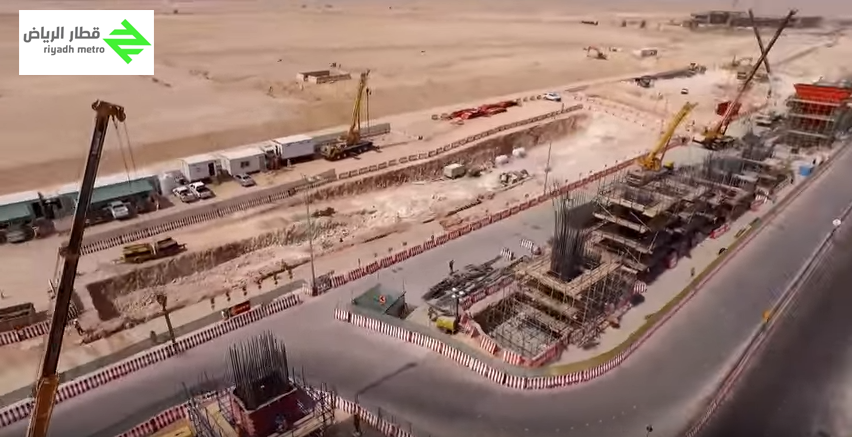A recently released video by the leading construction partners on Riyadh’s metro project highlighted the progress made on the mega-project that will change the way the city’s residents get around.
In October, the Riyadh metro project hit a major milestone as a consortium led by Spanish construction giant FCC said it has completed the drilling work related to the first tunnel section of Line Five (Green line). Riyadh’s metro system comprises 6 lines, and is projected to open to service in 2019.
The video, as well as photos that have appeared in Saudi Arabia’s press agency (SPA), show the massive scale and heavy drilling and construction involved in the project.
Two of the rail lines are being designed and built by a Bechtel-led consortium, from design, construction, train cars, and signaling―as well as electrification and integration of the new lines to the rest of the system at a cost of $10 billion.
Saudi Arabia continues to invest in transportation infrastructure projects across the Kingdom despite reduced revenues. These developments are changing the face of Saudi Arabia’s cities and improving the mobility of Saudi citizens.
And, with energy subsidies in the crosshairs of prudent Saudi officials who are seeking to curb domestic use, public transportation will become an increasingly attractive option for consumers.
Technologies are also changing transportation in Saudi Arabia, as they are elsewhere around the world. Uber’s recently announced $250m investment in the Middle East highlights the ride-sharing company’s interest in fast-growing markets like Saudi Arabia and the UAE.
Other major development projects in Saudi Arabia have been hit by delays. Riyadh’s King Abdullah Financial District (KAFD) situated on the outskirts of the city is behind schedule and still only partially complete. Riyadh’s metro will connect citizens to KAFD, with a forthcoming station designed by world-renowned architect Zaha Hadid.









